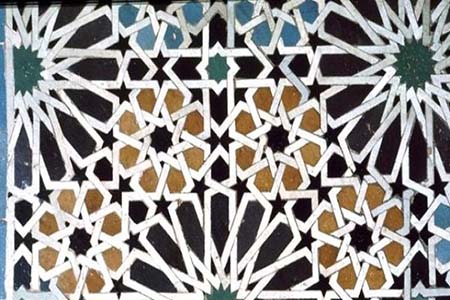
With this year's theme aptly chosen as "Geometric Designs in Wood and Tile," the workshop at Haliç Congress Center is being coordinated by Polish mathematics professor Miroslaw Majewski.
Speaking at the opening ceremony, Ayşe Taşkent, a member of the Ensar Foundation Board of Trustees, said that the civilization of Islam appreciates math and geometry more than any other civilization.
"Geometric patterns in Islamic art, where math, especially geometry combined with art, stand as an issue about science and math history as much as it is related to art history in the classical period Islamic world. Therefore, we do not think the level which is reached in science, art and math of the Islamic civilization can be understood if these patterns and the mathematical background of them are not searched enough," she explained.
Noting that they want to make the geometric patterns in Islamic art the current issue in accompany with foreign experts, Taşkent added, "We hope to make an interdisciplinary work in order to open up for new projects. We also need to announce the basic aim of the Istanbul Design Center. It aims to tell the architectural and aesthetical richness of our history and tradition and to transfer how this richness can be reinterpreted."
The workshop was held by the Istanbul Design Center in 2013 for the first time with the title, "Historic Process and New Tries." It was organized for the second time in Istanbul and Konya in September of 2014 under the title of "On the Track of the Seljuks." The third workshop was in Istanbul and Amasya between Sept. 24 and Oct. 1, 2016 with the title, "Patterns Engraved on Stone."
The first day courses of the workshop will be provided for free.
The workshops, which started Tuesday, will continue until Sept. 28. They will be provided to a certain number of participants at the Istanbul Design Center.
This year, 15 experts from the US, UK, Poland, Uzbekistan, Iran and Turkey have been invited for seminars and workshops, the Daily Sabah reported.
Participants comprising of undergraduate and master's students in architecture, math, physic, social sciences and art and people from the business world will be taking part in the event.
At the end of the workshop, a tour will be organized to Bursa province, and the participants and experts will have an opportunity to examine the pattern applications in some of historical places in the city.

Add new comment